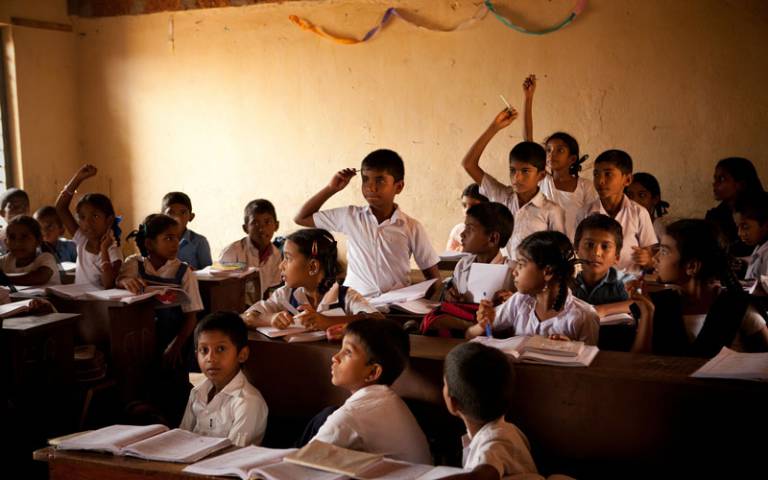India and me: Engage. Reflect. Act.
26 January 2024, 1:00 pm–2:30 pm

Join the launch of the new public pedagogy programme - 'india&me: engage. reflect. act.' This innovative educational programme is cross-disciplinary and decolonial.
Event Information
Open to
- All
Availability
- Yes
Organiser
-
Laila Kadiwal
Location
-
Room 728UCL IOE20 Bedford WayLondonWC1H 0AL
india & me is designed as a digital “cafe” space to un-learn dominant ways of thinking, researching and educating about the social, political and cultural in India and our role in the past, present, and future. We do this by collectively engaging in activities challenging our everyday comforts and discomforts around gender, caste, religion, and more.
This groundbreaking programme uses art to disrupt conventional ways of working with marginalised populations in India. The versatile, interactive and participatory approach is grounded in intersectional feminist praxis. It facilitates a deconstruction of concepts of caste and race, class, patriarchy, gender and sexuality, religion, nationalism and borders, ableism, colonialism, language, and conflict intersectionally in a way that seeks to unpack privilege and amplify egalitarian insights emerging from the struggles of historically marginalised populations in India, offering new critical insights for engaging with India. This pathbreaking approach disrupts conventional ways of working by treating margins as a site of knowledge production.
Partly funded by UCL Global Engagement Funds, this programme is co-constructed by a female-led team of scholars from across religion, caste, region, and class backgrounds who are committed to addressing intersectional injustices in India. The programme results from an extensive three-year collaboration between colleagues, including scholars, civil society stakeholders, activists, artists, students, lawyers, and public members across India and its diaspora. Content and pedagogy are based on interdisciplinary research, grassroots insights, and a robust trial run and peer-reviewing process and are supported by the "Do No Harm principle".
This event will be particularly useful for anyone interested in learning about decolonial pedagogies or education's role in contributing to intersectional justice in India, including students, researchers, educators, policymakers, development practitioners, and public members.
Please note this is a hybrid event and can be joined either in-person or online.
Related links
About the Speakers
Dr Laila Kadiwal
Lecturer at IOE
She works on the intersections of identity and education in conflict, exploring the relationship between education, nation-state and identity in various contexts, including India, Pakistan, Tajikistan, the UK and the UAE. She has also founded the Theatre of the Privileged decolonial movement in education and international development.
Dr Swati Kamble
Independent researcher-activist
Her research broadly focuses on human rights and social justice movements, decolonisation and intersectionality. Her PhD in socio-economics from the Faculty of Social Sciences, University of Geneva, focused on the political mobilisation of India's caste-affected, caste-oppressed communities, their movement history, and how this movement has shaped lower-caste women activists into agents of change.
Professor Aparna Vaidik
Ashoka University
She has previously taught at Georgetown University, Washington DC and the University of Delhi and was educated at Jawaharlal Nehru University, University of Cambridge, and St. Stephen’s College. She has authored a diverse set of monographs, journal articles and book chapters in volumes on environmental history, labour history, history of Indian nationalism and revolutionism, the history of the Indian Ocean and its islands and psychoanalytical history.
Dr Kavita Ramakrishnan
Associate Professor in Geography and International Development at the University of East Anglia
She is an urban geographer specialising in experiences of belonging, informality, and everyday life on the margins. Her research to date focuses on two strands: the lived experiences of eviction and resettlement in India and refugee provisioning and care in European cities. She is interested in collective methodologies as a mode to disrupt traditional/colonial forms of knowledge production.
 Close
Close

